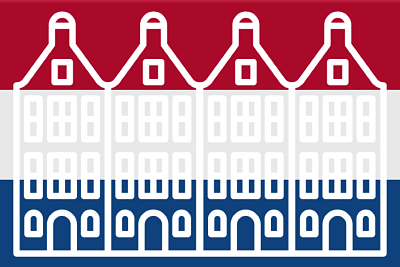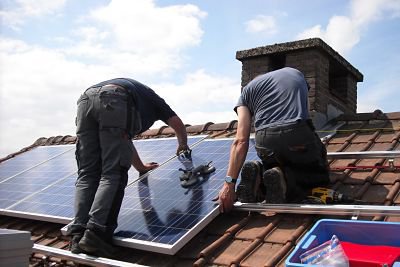For expats looking to buy a house in the Netherlands or other European countries, navigating the complexities of mortgage financing can sometimes feel overwhelming. However, for those with the financial means to do so, buying a home outright without the need for financing is an attractive option. This approach not only helps avoid lengthy application processes and interest payments but also provides freedom and peace of mind, knowing that your property is fully yours from the moment of purchase.
In this guide, we’ll walk you through the key benefits and considerations of purchasing a house without financing, highlighting important tips tailored specifically for expats.
Note: At Hanno, we strongly advise that expats seek the guidance of an experienced advisor when purchasing a home, even when financing isn't required. Navigating the legal, tax, and regulatory complexities in a foreign country can be challenging, and having a knowledgeable expert by your side ensures a smoother and more secure transaction. An advisor like Hanno will not only help you avoid costly mistakes but also provide personalized insights tailored to your unique situation, ensuring that your investment is protected and your home-buying experience is stress-free.
1. The Appeal of Buying Without Financing Conditions
Purchasing a home without relying on a mortgage can offer many advantages:
- No Interest Payments
The most obvious benefit is avoiding the long-term burden of interest payments. Even with competitive mortgage interest rates, the interest over the life of a loan can add significantly to the total cost of the property. By paying in full, you eliminate this expense entirely.
- Simplicity in the Buying Process
Mortgage approval processes can be long, particularly for expats who might face additional scrutiny or complexities around documentation and income verification. Without the need for financing, the buying process is often smoother and quicker.
- Increased Negotiation Power
Buyers who can pay for a home without the need for financing are often seen as more desirable by sellers. This can give you leverage in negotiations, potentially leading to a better deal on the price of the property.
- Full Ownership
When you purchase without financing, you own the house outright from day one. There are no monthly payments to worry about, no risk of defaulting, and no obligations to a lender. You’re free to live in, rent out, or sell the property on your terms.
- Freedom from Financial Fluctuations
With interest rates fluctuating due to market conditions, having full ownership offers a stable financial position. Expats, in particular, might find this appealing as they often move between countries with different economic landscapes.
2. Challenges Expats May Face in Buying a House Outright
While buying without a mortgage can seem ideal, there are a few challenges expats may need to consider:
- Currency Exchange Risks
For expats earning income in a different currency, fluctuations in exchange rates can affect the actual cost of purchasing a home. It’s wise to monitor currency trends or consider working with a currency exchange service to lock in favorable rates.
- Tax Implications
In some countries, expats may face additional tax liabilities when purchasing property outright. In the Netherlands, for example, there’s a transfer tax, which is a one-time payment of 2% of the purchase price for residential properties. Be sure to consult with a local tax advisor familiar with expat needs to avoid surprises.
- Restrictions on Foreign Buyers
Some countries have restrictions on property purchases by non-residents. It’s important to check whether there are any limitations or special requirements you need to meet before proceeding with a purchase.
- Capital Liquidity
Paying for a house in full ties up a large amount of capital in an illiquid asset. While this isn’t necessarily a downside, it’s essential to ensure you still have access to enough liquid funds for emergencies or other investments.
3. Key Steps to Buying a House Without Financing
Now that you’ve considered the benefits and challenges, let’s explore the essential steps to buying a house without financing as an expat.
- Understand the Local Real Estate Market
Before making a purchase, it’s crucial to have a deep understanding of the real estate market in the country where you’re buying. Housing markets differ widely between cities and regions. As an expat, working with a local real estate agent who has experience dealing with international buyers can be invaluable.
- Arrange for Legal and Financial Advice
Because real estate laws can vary significantly from country to country, it’s important to work with a legal advisor who specializes in property transactions for expats. They can ensure that your purchase adheres to local regulations and help avoid any legal pitfalls.
- Secure a Notary for the Purchase
In many European countries, a notary is required to oversee the property transaction. They act as an impartial third party, ensuring that all legal documentation is in order and that the property’s title is transferred correctly. The notary will also ensure that all taxes and fees are paid during the transaction.
- Conduct a Property Valuation and Inspection
Even though you won’t be seeking a mortgage, it’s still important to get a valuation and inspection done on the property. This ensures you’re paying a fair price and that there are no hidden issues with the home, such as structural defects or maintenance concerns.
- Ensure Funds are Ready
Given that you’re purchasing outright, you’ll need to ensure that the necessary funds are available and ready for transfer. Be aware of any regulations around transferring large sums of money into the country, as some nations have strict reporting requirements for international financial transactions.
- Pay Taxes and Fees
In addition to the purchase price, you’ll be responsible for certain taxes and fees associated with the transaction. These can include:
- Transfer tax (if applicable in your country of purchase)
- Notary fees
- Property registration fees
Being aware of these costs upfront helps avoid last-minute surprises.
4. Mitigating Risks and Maximizing Opportunities
To make the most of your purchase and minimize risks, keep these tips in mind:
- Diversify Your Investment Portfolio
Even if you have the cash to buy a home outright, it’s a good idea to keep some of your capital in more liquid assets or investments that can generate returns. Real estate is a solid investment, but diversifying helps reduce risk.
- Consider Rental Potential
For expats who might move countries frequently, purchasing a home that can be rented out when not in use can offer additional income and help offset maintenance costs. Research the local rental market and any regulations around short- or long-term rentals.
- Plan for the Long-Term
It’s essential to think about how long you intend to stay in the property and whether it aligns with your long-term financial goals. Real estate markets fluctuate, so having a plan for holding the property long-term can help ensure you maximize your investment.
5. Conclusion
Buying a house without financing can be an empowering decision for expats, offering flexibility, security, and financial freedom. By understanding the unique challenges expats face, such as tax implications, currency fluctuations, and local market conditions, you can make an informed decision that aligns with your personal and financial goals. Whether you want to buy a house with financing conditions or without. Be sure to work with experienced professionals, such as real estate agents, legal advisors, and tax consultants, to ensure a smooth transaction.
Ultimately, owning your home outright provides peace of mind and full control over your property, allowing you to focus on enjoying your new life abroad without the worries of mortgage payments.
At Hanno, we specialize in helping expats navigate the intricacies of property ownership and can provide tailored advice to help you achieve your home-buying goals.
Housing and mortgage webinar for Expats
Overall, buying a house is a big step, and can be especially challenging when you're an expat and living abroad.
Hanno organizes a monthly webinar, where we will tell you all about the current status of the housing market in the Netherlands. Feel free to join this free and interactive webinar, and let us help you on your way.
Read more about mortgages


